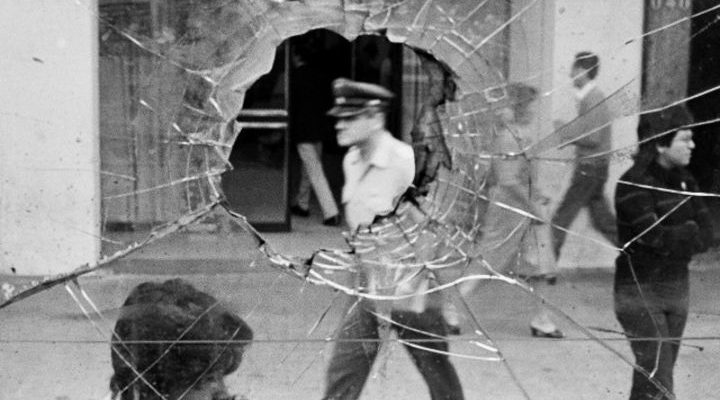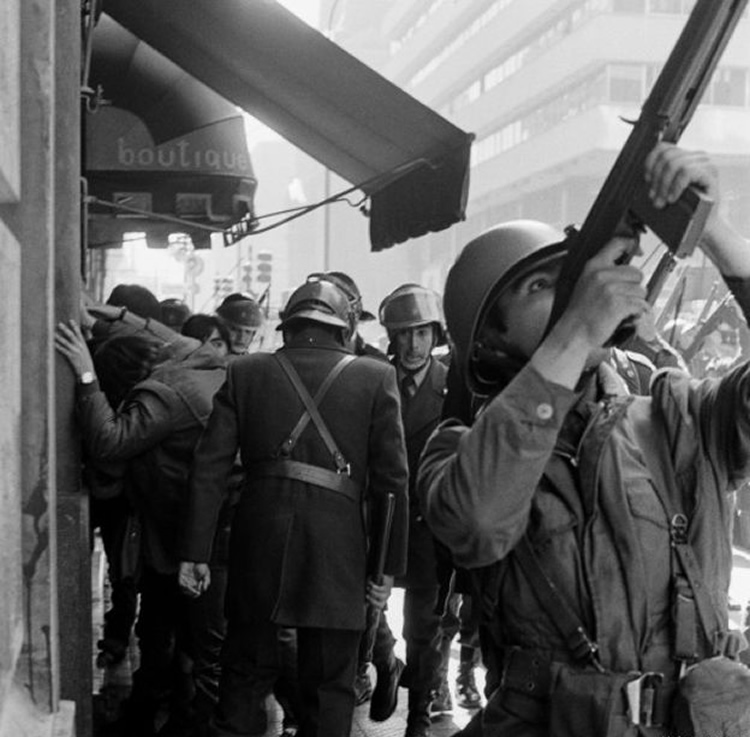Emergency Family Income: Learn how to update your data from the Social Registry of Homes

Emergency Family Income: Check who will receive the new government benefit
What happened?
This Monday President Sebastián Piñera presented the Emergency Family Income bill , which will benefit 60% of the most vulnerable families in the country with informal incomes.
This benefit will be received by 1.78 million households, of which 64% are headed by women and will benefit 4.5 million people.
As reported by the President, the bill will be sent to Congress for approval in the shortest possible time, to deliver it as of May.
Updating of the Social Registry of Homes
An important point is the information on the socioeconomic vulnerability of families, so they must update their data in the Social Registry of Households.
For this reason, it is highly relevant that the families in which they correspond update their Social Register of Homes in person or on the website www.registrosocial.gob.cl . To access the Registry, the Unique Key must be entered .
According to information from the Government, the Social Registry of Homes is a database that contains information on the individuals and households that have applied for their incorporation, and is made up of information provided by both families and various State institutions.
For those who update the data or want to enter their Registry, they must attach an application form, a copy of their Identity Card, some document to prove residence, information on the adult members of their family, and the birth certificate of boys and girls.
In addition, a simple affidavit signed by the person designated as the head of the household with the authorization of the incorporation of children in informal personal care.
meganoticias.
The protest that ended with 29 dead in two days and without a word from Sergio Onofre Jarpa

In 1983, things were boiling in Chile.
After the economic debacle of the previous year and which raised unemployment to 23.7%, a series of protests were launched against the dictatorship, whose focus gradually turned to demand the departure of Augusto Pinochet .
Under pressure, the de facto ruler decided to make changes to his cabinet and leave it to be led by Sergio Onofre Jarpa , former leader of the National Party, as interior minister, and who would have the task of achieving a supervised political opening.
Known as a hard but skillful articulator, Onofre Jarpa managed to get the dictatorship to allow the political movements to function, press censorship to be partially lifted, several representatives in exile to return, and groups such as professional associations or student federations they could directly elect their representatives.
But this process, known as "Jarpa's spring" did not last long. Pinochet's intransigence to modify his Constitution and the increase in protests against him, led to violent days of repression, one of the bloodiest being on August 11 and 12, 1983, which ended with 29 people killed and more than 200 wounded, many of them shot from police vehicles.
Despite the international impact of the massacre, Sergio Onofre Jarpa did not comment on it, focusing on saving the political progress he had made
This is how the newspaper El País of Spain covered at the time :
Balance of 26 dead in the indiscriminate repression of the fourth day of protest in Chile

As the death toll rises to a minimum of 24 between last Thursday and Friday (all civilians), two other people were killed on Friday afternoon on the outskirts of Santiago de Chile: a 14-year-old girl who was shot dead in two shots in the back and a 28-year-old man who was hit by shots fired from a policeman bus.
There are over a hundred wounded, although the Chilean government only officially accounts for 53, and there are a thousand detainees throughout the country.
Thursday's hangover has continued for the last 48 hours in towns near Santiago de Chile as well as in the capital itself. Barricades of fire had cut off access to the neighborhoods in the southern sector of the city for hours, while its inhabitants faced off with no weapons other than stones with the police.
After 23 hours, the Army was again intervened to restore order, with the aforementioned balance of two new deaths. Santiago's moral climate is one of desolation and amazement at the indiscriminate nature of the repression.
Even the Government has not felt strong enough to carry out the threats of General Augusto Pinochet who announced the arrest of the signatories of the protest call.
Unusually, the commander-in-chief of the Air Force and member of the Military Government Junta, General Fernando Matthei , hastened to declare that his troops did not fire a single shot on Thursday night, in the capital sector, Santiago. , that it corresponded to them to patrol, whereas in the rest of the city it was the Army of Earth that did it. The attempt to distance himself is considered particularly significant.
The Chilean democratic alliance values very positively the fissure that has occurred in military monolithism
Santiago was divided into five zones, in a military operation personally designed by Pinochet, who for days neglected the crisis of his Cabinet last week to deal with control of the capital, based on the experience of the three days of protest. previous. Four areas of Santiago were in charge of four Generals of the Army and one in command of a general of the Air Force.
Matthei personally supervised his area by helicopter and on foot. "We were not attacked by anyone, nor did we fire a single shot at anyone," he just declared, exonerating the aviation from the nonsense committed by the Earth Gun.
Sources from the newly created Democratic Alliance (a multi-party without communists) highly value this fissure in military monolithism.
It is estimated that Pinochet tried on Thursday to involve the Army in the repression again, and the strategy of the opposition parties would now go to convince the military that they cannot lend themselves to the tremendous wear and tear of occupying Santiago once a month and proceed to a massacre periodical of civilians.
The Air Force seems to have already understood this without the need for further stimulation. And the head of aviation has gone one point further in his statements, estimating that “it is time for Chile to once again have a political debate. It is time for all the arguments for and against new solutions to emerge in Chile and for the Government to know about them and for all Chileans to participate in the debate. The genuinely democratic sectors, even if they do not participate in the ideas of this Government, will very soon find a way to express themselves as organized and legal political parties ”.
Matthei, in his press conference, emphasized declaring that the term until 1989 that the Pinochet constitution establishes for the restoration of democratic normality, is a "maximum" term that can be shortened.
Six years into the month, the monthly days of protest have deeply crippled his hopes of remaining in power. Any Chilean schoolboy knows of the resignation of the general-dictator Ibáñez in 1929, after the death of the medical student Jaime Pinto, in a street demonstration; in everyone's mind is the memory of the resignation, exile and death in Peru of the general-president Bernardo O'Higgins, father of the country, whom the Chilean bourgeoisie rejected for his authoritarianism.
A weak liberal and surrender
BBC
BBC
Pinochet, in matters of authoritarianism, has turned the figure of O'Higgins into that of a weak and surrender liberal and, in the last four months alone, his repression has led to the death of 30 civilians, including several children. In Chile, all revolutions have been made in the name of the Constitution and republican liberties, including that of 1973. And despite the barbarism of that repression, the Chilean military has not yet internalized the theory of the internal enemy.
Reliable versions, but impossible to verify, have assured this special envoy that General Matthei, before his press conference, spoke with Pinochet and notified him that his force would not intervene in the occupation of Santiago again in future days of protest.
Sergio Infiernillo Onofre Jarpa (the Chileans play a pun between Onofre and anafre, which for them is synonymous with portable cooking), the new interior minister and prime minister in fact, has not opened his mouth since Thursday. His position and his figure demand an explanation.
The interior minister in Chile is theoretically in charge of political development and does not have command of the repressive forces, dependent on the military commandos or the president himself. Pinochet has ended up designating Infiernillo Onofre as a pilot of political development - hence his de facto premier status - to try to place himself above good and evil, as if he were the Queen of England.
But Onofre, a nationalist reputed here as a Nazi, brilliant, ambitious, energetic, aspires to go down in Chilean history as the man of transition . Those who know him believe that he would not hesitate to sacrifice Pinochet himself. It is the opposite of a Carrero or a Carlos Arias. He is also the complete opposite of an Adolfo Suárez. It would approach a mixture of Blas Piñar and Fraga. “It will be an exciting show”, they tell you in Santiago: “Two male gorillas locked in the same cage. One will tear the other apart. ”
For the moment, Onofre remains silent and prepares political responses to stop the unstoppable day of protest on September 11, the regime's tenth anniversary. But there is no moral or desire, not even among the extreme right-wing of the regime, for a parade, a patriotic demonstration, nothing at all. Reoccupying Santiago with an 11-hour military curfew does not seem the most appropriate to celebrate this political delight. Now there is only the pact with the opposition. But, after the deaths on Thursday and Friday, General Pinochet's head is a non-negotiable pledge for the opposition.
Finally, the Church, of decisive influence in this country, has made its voice heard in a document The New Call, in which the cessation of violence from any side that comes is requested, “the cessation of threats, intransigence and the excessive repressions ”.
This is the voice of the Church in a country where, probably like no other, it has moral and political prestige. After this document and the general defection of General Matthei after the recent massacre in Santiago, the permanence of General Pinochet in the La Moneda palace begins to be an inextricable mystery. Only fear of the power vacuum and political despair of a ruined society underpin this spiteful general who never looks straight.
biobiochile.





No comments:
Post a Comment